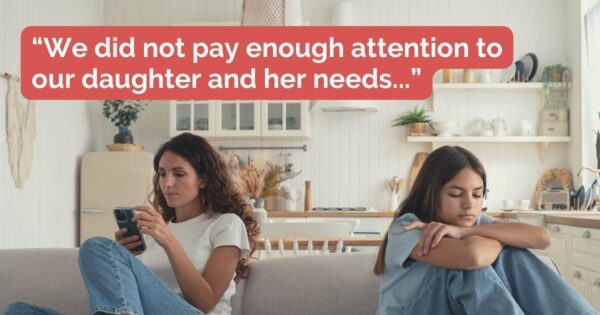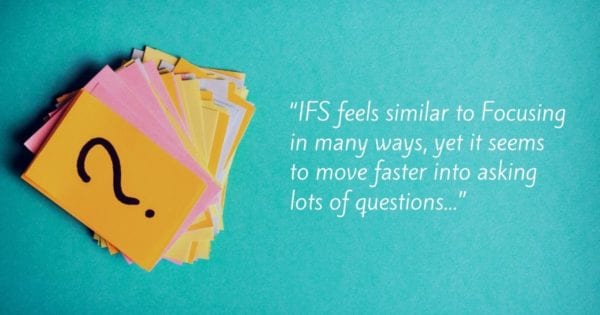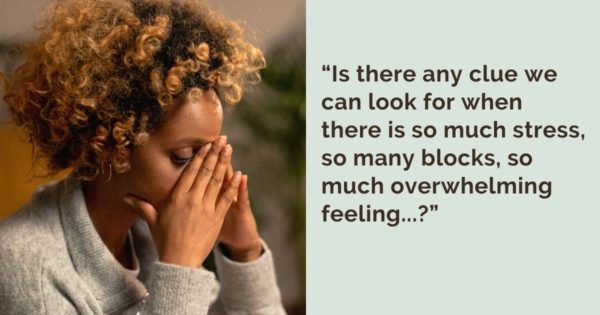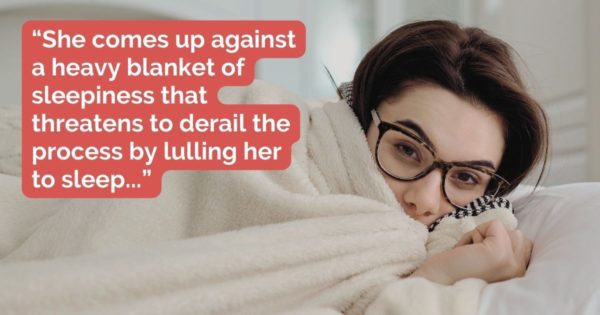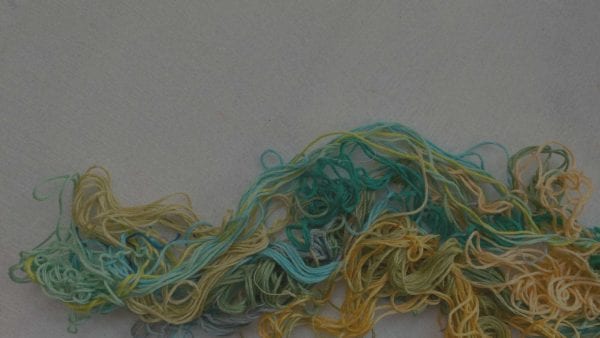“I have parts that say things like, ‘I am bad, I did those things wrong.'”
Leona writes: “I have lots and lots of parts that don’t point the finger accusing me, but they say things like: ‘Oh, I feel so bad, I am bad, I did these things wrong.’ The feelings are like shriveling up, collapsing in, curling up in a ball in a dark place, grieving, that kind of thing. I acknowledge whatever the feelings are, and just be with them. The process eventually changes, shifts and feels better. But these same kinds of parts have continued to come up with the same core issues about self blame, guilt, and regret.
“Are these critic parts? Should I be handling this any differently?”
Dear Leona,
As I see it, the kind of part that says, “I am bad, I did it wrong,” is not an inner critical part, but it’s related to inner criticism. It’s what we could call “a critic’s victim,” a part of you reacting to feeling criticized. Shriveling, collapsing, curling up, and feeling bad are all common manifestations of this type of part.
I like to say that there are three secrets to transforming inner critics. The first secret is that the criticizing part is worried about something. The second secret is that the criticizing part is powerless to effect change in the outer world, and that’s what makes it so worried. And the third secret is that YOU are not the target of its criticism.
That’s right: The criticizing part is not criticizing you. Or, to put it another way, you don’t have to identify with the part of you being criticized.
You can be Self-in-Presence, the calm state of acceptance and interested curiosity where all of your parts can have a space to be as they are, and be heard. This means both the criticizing part AND the criticized one.
“I don’t have an inner critic, I just feel unworthy.”
I was astonished the first time someone said to me, “I don’t have an inner critic, I just feel unworthy.” I had thought it was obvious that feeling unworthy was a sign of an inner critic. But then I remembered my early days of discovering how to work with feelings of unworthiness and shame. I felt the shame, but I didn’t feel anything in me that was shaming me.
It was my work with Barbara McGavin that taught me to look for an implied part, something that was known by its effects, rather than being directly felt. I learned that if I felt shame, there were two parts: something feeling ashamed and another part doing the shaming. If I felt those criticized, collapsing, shriveling feelings of being criticized, I could be sure that there was another part of me — somewhere — doing the criticizing.
I learned that I could say “Hello” to something that I could guess was there, and move into a relationship with it, and because of that it would eventually show itself.
So, Leona, what I would suggest you do is assume there is another part of you saying “You are bad, you did that wrong,” that is speaking to that part of you that is collapsing. Then say “Hello” to both, and be Self-in-Presence holding a space for both. You may not feel the criticizing one for a while, but you can know it is there.
In time, when both parts feel safe (because you are Self-in-Presence) you can start to listen to each one for what it is feeling and what it is not wanting to happen to you. That’s what will bring lasting change.

